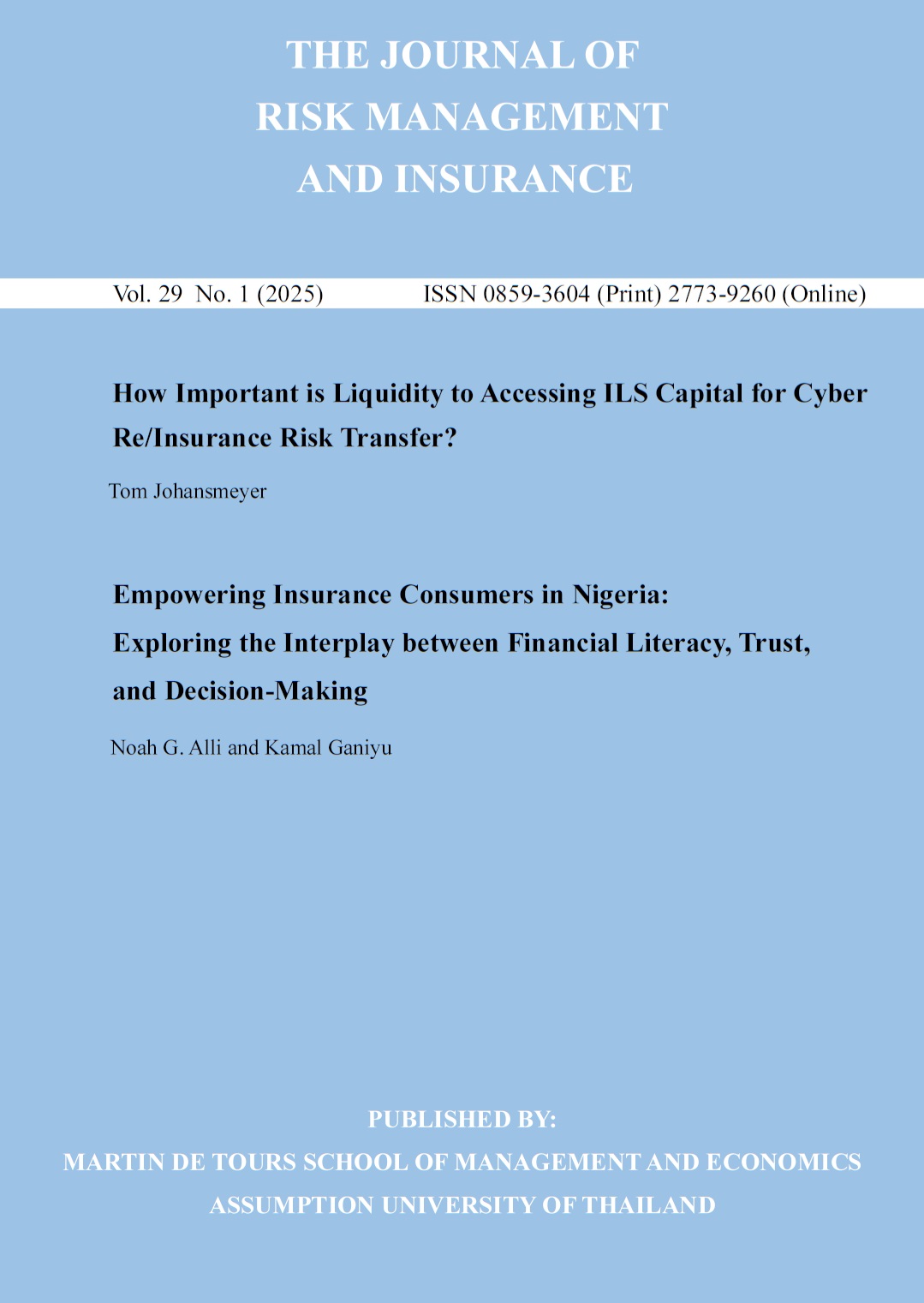Empowering Insurance Consumers in Nigeria: Exploring the Interplay between Financial Literacy, Trust, and Decision-Making
Keywords:
Financial Literacy, Trust, Insurance Decision-Making, Consumer Behavior, NigeriaAbstract
This study examines the interplay between financial literacy, trust, and insurance decision-making among consumers in Nigeria. Despite the growing insurance market, penetration rates remain low, often attributed to limited financial literacy and distrust in insurance providers. Utilizing a survey research design, data was collected from 384 respondents in Lagos State, Nigeria. The study employed multiple regression analysis to assess the effects of financial literacy and trust on consumers' perceived value of insurance. The results reveal that financial literacy, encompassing general financial knowledge, insurance knowledge, and understanding of risk and policy terms, significantly influences insurance decision-making (p < 0.05). Trust in insurance providers, defined through competence, integrity, benevolence, reliability, and transparency, also shows a positive impact on consumer decisions (p < 0.05). The model demonstrated that both factors jointly account for a significant portion of the variance in perceived insurance value (R² = 0.259; F = 26.572, p = 0.000 for financial literacy predictors; R² = 0.157; F = 14.137, p = 0.000 for trust predictors). The findings suggest that enhancing consumer education and fostering trust through transparency and ethical practices can lead to increased insurance uptake in Nigeria. This study contributes to the existing literature by providing a multidimensional analysis of trust and its effects on consumer behavior, particularly within the context of a developing economy.
Downloads
Published
Issue
Section
License
Upon acceptance, the author(s) agree to transfer the copyright to their work to the Assumption University of Thailand, which owns the journal, royalty-free, for the sole purpose of academic publishing. The author(s) retain the right to self-archive the published paper, print copies for their personal use provided they will not be sold commercially, and use it for their future work provided the published article is properly cited.

